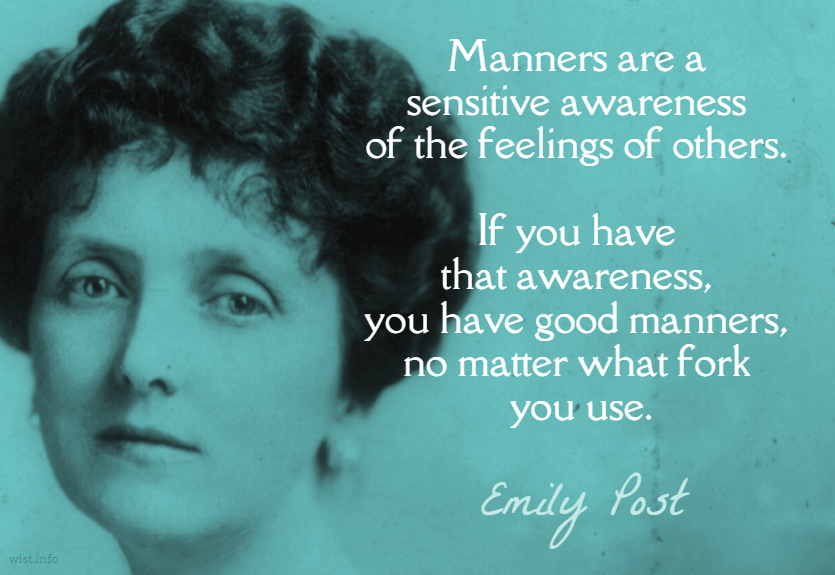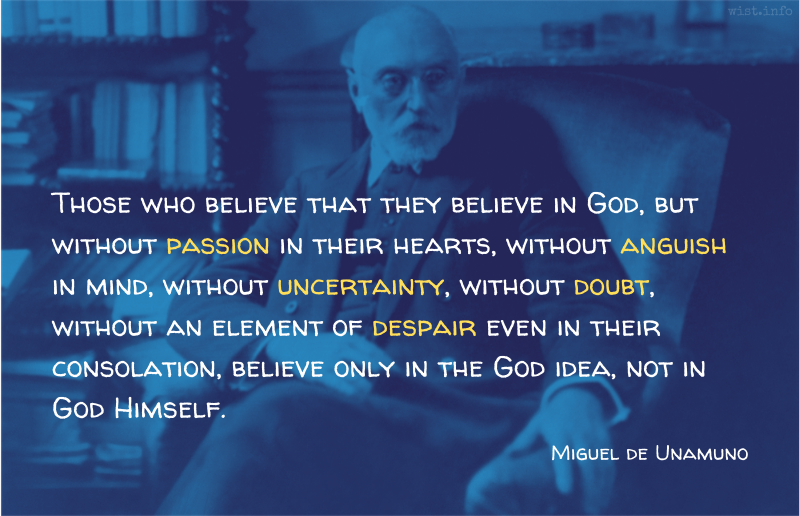I’ve always felt sorry for people afraid of feeling, of sentimentality, of emotion, who conceal what they feel and are unable to weep with their whole heart. Because those who do not know how to weep with their whole heart don’t know how to laugh either.
Golda Meir (1898-1978) Russian-American-Israeli politician, teacher; Prime Minister of Israel (1969-1974)
Interview by Oriana Fallaci, Ms. (1973-04)
(Source)
The Ms. article is a portion of an interview held in Jerusalem in November 1972. Answering to the charge that she is hard and inflexible, countering that she is very sensitive and feeling in most matters.
The full interview was reprinted in Fallaci, Interview with History, ch. 4 "Golda Meir" (1974) [tr. Shepley (1976)], but slightly rephrased:
I’ve always felt sorry for people who are afraid of their feelings, of their emotions, and who hide what they feel and can’t cry wholeheartedly. Because anyone who can’t cry wholeheartedly can’t laugh wholeheartedly either.
Was this re-edited (and in which instance?), or is it a matter of different translation? It's unclear in what language the interview was conducted, but the original edition of the book (Intervista con la Storia) was in Italian, Fallaci's native language, which gave the passage as follow:
A me ha sempre fatto pena la gente che ha paura dei sentimenti, delle emozioni, e nasconde quello che prova e non sa piangere con tutto il cuore. Perché chi non sa piangere con tutto il cuore non sa nemmeno ridere a gola spiegata.
Quotations about:
feelings
Note not all quotations have been tagged, so Search may find additional quotes on this topic.
Religion does not consist in doctrines of any kind, but in sentiments of reverence toward God, and of justice and benevolence toward our fellow men.
Lydia Maria Child (1802-1880) American abolitionist, activist, journalist, suffragist
The Progress of Religious Ideas Through Successive Ages, Vol. 3, “Concluding Chapter” (1855)
(Source)
The hardest lesson — and this is what child-rearing and perhaps all of manners is about — is that there are other people in the world and you do have to take their feelings into consideration. It doesn’t mean you always have to yield to them, but it does mean that you have to know how to deal with them. A lot of people know that they want to be treated politely, but they don’t make that little leap and say, Well, the other person must feel that way, too.
Judith Martin (b. 1938) American author, journalist, etiquette expert [a.k.a. Miss Manners]
In “Polite Company,” interview by Hara Estroff Marano, Psychology Today (1998-03)
(Source)
Once considered an art form that called for talent, or at least a craft that called for practice, a poem now needs only sincerity. Everyone, we’re assured, is a poet. Writing poetry is good for us. It expresses our inmost feelings, which is wholesome. Reading other people’s poems is pointless since those aren’t our own inmost feelings.
Barbara Holland (1933-2010) American author
Wasn’t the Grass Greener?: A Curmudgeon’s Fond Memories, “Poetry” (1999)
(Source)
The truth is sometimes seen, but rarely heard: on the fewest of occasions does it arrive in its elemental purity, especially if it has travelled far, for then it is always soiled by what has happened on the road: for feeling tinges with her colors all that she touches, sometimes happily, sometimes unhappily: she always leaves some kind of mark.
[La verdad ordinariamente se ve, extravagantemente se oye; raras veces llega en su elemento puro, y menos cuando viene de lejos; siempre trae algo de mixta, de los afectos por donde pasa; tiñe de sus colores la pasión cuanto toca, ya odiosa, ya favorable. Tira siempre a impresionar.]
Baltasar Gracián y Morales (1601-1658) Spanish Jesuit priest, writer, philosopher
The Art of Worldly Wisdom [Oráculo Manual y Arte de Prudencia], § 80 (1647) [tr. Fischer (1937)]
(Source)
(Source (Spanish)). Alternate translation:
Commonly truth is seen, but it is extraordinary to hear it. It seldom comes pure to our ears, especially when it come from a far. For then it takes some tincture of the passions that it meets by the way. It pleases or displeases, according to the colours that passion or interest give it, which aim always at prepossessing.
[Flesher ed. (1685)]
The truth is generally seen, rarely heard; seldom she comes in elemental purity, especially from afar; there is always some admixture of the moods of those through whom she has passed. The passions tinge her with their colors wherever they touch her, sometimes favorably, sometimes the reverse.
[tr. Jacobs (1892)]
Truth is more often seen than heard. Seldom does it reach us unalloyed, even less so when it comes from afar. It is always blended with the emotions it has passed through. Emotion taints everything it touches, making it odious or favorable. It tries always to impress us one way or another.
[tr. Maurer (1992)]
Emotion doesn’t travel in a straight line. Like water, our feelings trickle down through cracks and crevices, seeking out the little pockets of neediness and neglect, the hairline fractures in our character usually hidden from public view.
A man can’t help his feelings sometime. He don’t even understand his damn self half the time and there the trouble starts.
A gentleman is one who never hurts anyone’s feelings unintentionally.
Oliver Herford (1863–1935) Anglo-American writer, artist and illustrator
(Attributed)
Widely attributed to Herford as early as 1915. Similar in construction to "A gentleman is a man who never gives offense unintentionally," "A gentleman is a person who never insults anyone unintentionally," etc., which go back to at least 1905, and in the late 1920s were attributed without citation to Oscar Wilde. See here for more discussion of the Wilde citation.
By possible coincidence, Herford was known at the time as the American Oscar Wilde.
Never apologize for showing feeling, my friend. Remember that when you do so, you apologize for truth.
Benjamin Disraeli (1804-1881) English politician and author
Contarini Fleming, ch. 13 (1832)
(Source)
Manners are a sensitive awareness of the feelings of others. If you have that awareness, you have good manners, no matter what fork you use.
Emily Post (1872-1960) American author, columnist [née Price]
(Attributed)
Often cited to her famous Etiquette in Society, in Business, in Politics, and at Home (1922), but not found in that work. Claimed as genuine by the Emily Post Institute.
Reason! reason! … As much as you like; but beware of thinking that it answers to everything, suffices for everything, satisfies everything. This mother loses her child: will reason comfort her? Does cool reason counsel the inspired poet, the heroic warrior, the lover? Reason guides but a small part of man, and that the least interesting. The rest obeys feeling, true or false, and passion, good or bad.
Joseph Roux (1834-1886) French Catholic priest
Meditations of a Parish Priest: Thoughts, ch. 4, #95 (1886)
(Source)
Men, as well as women, are much oftener led by their hearts than by their understandings.
Lord Chesterfield (1694-1773) English statesman, wit [Philip Dormer Stanhope]
Letter to his son, #154 (21 Jan 1748)
(Source)
No tears in the writer, no tears in the reader. No surprise for the writer, no surprise for the reader.
Robert Frost (1874-1963) American poet
“The Figure a Poem Makes,” Collected Poems, Preface, “The Figure a Poem Makes” (1939)
(Source)
He who knows only his own side of the case, knows little of that. His reasons may be good, and no one may have been able to refute them. But if he is equally unable to refute the reasons on the opposite side; if he does not so much as know what they are, he has no ground for preferring either opinion. The rational position for him would be suspension of judgment, and unless he contents himself with that, he is either led by authority, or adopts, like the generality of the world, the side to which he feels most inclination.
John Stuart Mill (1806-1873) English philosopher and economist
On Liberty, ch. 2 “Of the Liberty of Thought and Discussion” (1859)
(Source)
The proper use of embarrassment is as a conscience of manners. As your conscience might trouble you if you do anything immoral, your sense of embarrassment should be activated if you do anything unmannerly. As conscience should come from within, so should embarrassment. Hot tingles and flushes are quite proper when they arise from your own sense of having violated your own standards, inadvertently or advertently, but Miss Manners hereby absolves everyone from feeling any embarrassment deliberately imposed by others.
Judith Martin (b. 1938) American author, journalist, etiquette expert [a.k.a. Miss Manners]
Miss Manners’ Guide to Excruciatingly Correct Behavior, Introduction (1983)
(Source)
Those who believe that they believe in God, but without passion in their hearts, without anguish in mind, without uncertainty, without doubt, without an element of despair even in their consolation, believe only in the God idea, not in God Himself.
[Los que sin pasión de ánimo, sin congoja, sin incertidumbre, sin duda, sin la desesperación en el consuelo, creen creer en Dios, no creen sino en la idea de Dios, más no en Dios mismo.]
Miguel de Unamuno (1864-1936) Spanish philosopher and writer [Miguel de Unamuno y Jugo]
The Tragic Sense of Life [Del sentimiento trágico de la vida], ch. 9 “Faith, Hope, and Charity” (1912) [tr. Flitch (1921)]
(Source)
Alt. trans. [tr. Kerrigan (1972)]: "Whoever believes he believes in God, but believes without passion, without anguish, without uncertainty, without doubt, without despair-in-consolation, believes only in the God-Idea, not in God Himself."
Original Spanish.
In Unamuno's earlier, unpublished work Treatise on the Love of God [Tratado del amor de Dios], ch. 3 "What is Faith?" (1905-08) [tr. Orringer], he used this same phrase and surrounding text: "Those without passion in their soul, without anguish, without uncertainty, without doubt, without despair in consolation, think they believe in God; they believe only in the idea of God, but not in God Himself."

















